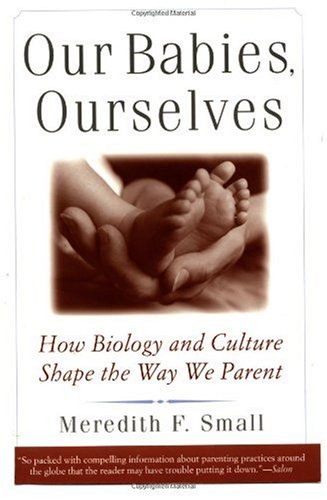The Adverse Health Effects of Formula Feeding
More significantly, the breast—bottle controversy has moved far away from the question of what is best for babies. The decision for substitute milk is influenced by the pressures of corporations, their advertising, and their lobbies. The money game behind the production of formula has overpowered what might be best for babies here in first-world countries and for babies more at risk in third-world countries. It takes about $1,800 a year to feed an infant some kind of powdered or canned formula. In third-world cultures, and for the working poor in developed nations, the cost is crippling. It is also undefendable given that a free alternative is readily at hand. Where medical care and hygiene are poor, many babies fed on formula become sick and die. Some researchers claim that bottle-feeding in underdeveloped countries increases the risk of infant mortality tenfold. And UNICEF estimates that 1.5 million babies die each year because they are not breast-fed. Loss of natural immunities and the lack of adequate sanitation provide an environment in which formula-feeding is not the safest alternative for infants, and thus infant mortality increases. In the West, where conditions are better and fewer babies die directly from formula-feeding, many more are sick with chronic health conditions. The U.S. National Institute of Environmental Health and Safety estimates that four out of every thousand infants in the United States die because they are not breast-fed. The increase in respiratory and gastrointestinal disease, the greater number of inner ear infections, the additional allergy shots necessary, and the extra pregnancies and births that come from the loss of the contraceptive effect of lactation, all combine to increase health costs shared by all.
Interestingly, the third world seems to be more savvy about how corporations push formulas on expectant mothers. The dramatic rise in mortality among formula-fed babies in developing nations has induced some professionals to initiate changes to combat the invasion of Western infant-feeding practices. For example, in Papua New Guinea, a prescription is now needed to buy a baby bottle. In the Philippines, hospitals now forbid formula-feeding and promote breast-feeding. As a result, fewer staff have been needed to prepare bottles and less electricity has been used to sterilize equipment. The hospitals estimated they saved over $10,000 in one year from their new program. Most important, there have been rapid decreases in infant illness. Other hospitals around the world, such as one in Quito, Ecuador, have copied the Philippine initiative.
Notes:
Formula feeding results in unnecessary expenses for poor people when a free alternative exists as well as having a deleterious effect on infant health that results in many deaths each year.
Folksonomies: breastfeeding formula corporatism
Taxonomies:
/family and parenting/babies and toddlers (0.566047)
/society/welfare/healthcare/hospital (0.279856)
/health and fitness/disease (0.225103)
Keywords:
Formula Feeding Formula (0.979113 (negative:-0.710207)), infant mortality increases (0.923167 (neutral:0.000000)), Adverse Health Effects (0.875891 (negative:-0.710207)), babies (0.864555 (negative:-0.385071)), free alternative (0.860642 (positive:0.055192)), chronic health conditions (0.811682 (negative:-0.746587)), U.S. National Institute (0.806788 (negative:-0.454704)), additional allergy shots (0.799397 (negative:-0.211939)), Western infant-feeding practices (0.794211 (neutral:0.000000)), fewer babies (0.794026 (negative:-0.431632)), inner ear infections (0.792855 (negative:-0.533392)), Papua New Guinea (0.788633 (neutral:0.000000)), infant health (0.781692 (negative:-0.710207)), formula-fed babies (0.760183 (neutral:0.000000)), canned formula (0.736619 (neutral:0.000000)), third-world countries (0.722251 (negative:-0.802252)), infant illness (0.717321 (negative:-0.286688)), deleterious effect (0.713890 (negative:-0.710207)), third-world cultures (0.711959 (negative:-0.669133)), poor people (0.710901 (negative:-0.710207)), unnecessary expenses (0.703463 (negative:-0.710207)), substitute milk (0.693156 (neutral:0.000000)), breast—bottle controversy (0.692027 (positive:0.296924)), natural immunities (0.690505 (negative:-0.551946)), underdeveloped countries (0.685726 (negative:-0.651323)), first-world countries (0.682373 (negative:-0.802252)), safest alternative (0.682133 (negative:-0.551946)), money game (0.681611 (negative:-0.802252)), adequate sanitation (0.678190 (negative:-0.551946)), Environmental Health (0.676965 (negative:-0.454704))
Entities:
third world:FieldTerminology (0.685427 (neutral:0.000000)), U.S. National Institute of Environmental Health and Safety:Organization (0.637406 (negative:-0.454704)), UNICEF:Organization (0.570466 (negative:-0.548689)), Papua New Guinea:GeographicFeature (0.560276 (neutral:0.000000)), Quito:City (0.549718 (neutral:0.000000)), West:Region (0.538629 (neutral:0.000000)), Ecuador:Country (0.517377 (neutral:0.000000)), Philippines:Country (0.516937 (neutral:0.000000)), medical care:FieldTerminology (0.508341 (negative:-0.821035)), United States:Country (0.497353 (negative:-0.454704)), one year:Quantity (0.497353 (neutral:0.000000)), $10,000:Quantity (0.497353 (neutral:0.000000)), $1,800:Quantity (0.497353 (neutral:0.000000))
Concepts:
Infant (0.972981): dbpedia | freebase | opencyc
Breastfeeding (0.895349): dbpedia | freebase | yago
Baby bottle (0.658672): dbpedia | freebase | opencyc | yago
Infant mortality (0.571546): dbpedia | freebase
Developing country (0.526053): dbpedia | freebase
United States (0.494581): website | dbpedia | ciaFactbook | freebase | opencyc | yago
Childbirth (0.492345): dbpedia | freebase
Pregnancy (0.485552): dbpedia | freebase | opencyc





